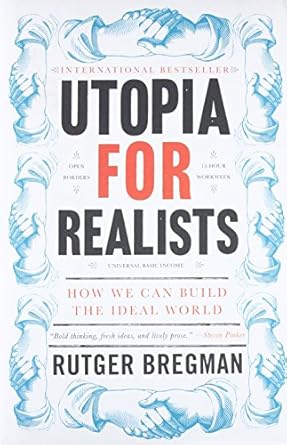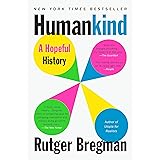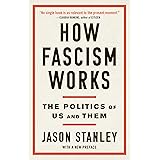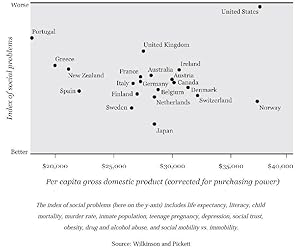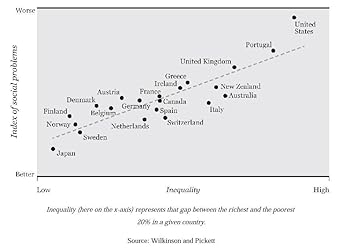




Download the free Kindle app and start reading Kindle books instantly on your smartphone, tablet, or computer - no Kindle device required.
Read instantly on your browser with Kindle for Web.
Using your mobile phone camera - scan the code below and download the Kindle app.

 Audible sample Sample
Audible sample Sample 


Utopia for Realists: How We Can Build the Ideal World Hardcover – March 14, 2017

Explore your book, then jump right back to where you left off with Page Flip.
View high quality images that let you zoom in to take a closer look.
Enjoy features only possible in digital – start reading right away, carry your library with you, adjust the font, create shareable notes and highlights, and more.
Discover additional details about the events, people, and places in your book, with Wikipedia integration.
"A more politically radical Malcolm Gladwell." -- New York Times
After working all day at jobs we often dislike, we buy things we don't need. Rutger Bregman, a Dutch historian, reminds us it needn't be this way -- and in some places it isn't. Rutger Bregman's TED Talk about universal basic income seemed impossibly radical when he delivered it in 2014. A quarter of a million views later, the subject of that video is being seriously considered by leading economists and government leaders the world over. It's just one of the many utopian ideas that Bregman proves is possible today.
Utopia for Realists is one of those rare books that takes you by surprise and challenges what you think can happen. From a Canadian city that once completely eradicated poverty, to Richard Nixon's near implementation of a basic income for millions of Americans, Bregman takes us on a journey through history, and beyond the traditional left-right divides, as he champions ideas whose time have come.
Every progressive milestone of civilization -- from the end of slavery to the beginning of democracy -- was once considered a utopian fantasy. Bregman's book, both challenging and bracing, demonstrates that new utopian ideas, like the elimination of poverty and the creation of the fifteen-hour workweek, can become a reality in our lifetime. Being unrealistic and unreasonable can in fact make the impossible inevitable, and it is the only way to build the ideal world.
- Print length336 pages
- LanguageEnglish
- PublisherLittle, Brown and Company
- Publication dateMarch 14, 2017
- Dimensions6.25 x 1.25 x 9.5 inches
- ISBN-100316471895
- ISBN-13978-0316471893
Books with Buzz
Discover the latest buzz-worthy books, from mysteries and romance to humor and nonfiction. Explore more
Similar items that may deliver to you quickly
From the Publisher
|
|
|
|
|---|---|---|
|
|
|
|
Editorial Reviews
Review
"Both a fun read and a breath of fresh air to anyone who lived through the ghastly experience of last year's presidential election season . . . Utopia for Realists argues, with humor and sympathy, that we've all suffered from forgetting how to dream of a better world....What's so interesting about modern America is our hostility to the mere idea of trying to create an easier and happier life. We're a country that was once rich with social experimentation . . . Now we don't really even try, and mostly just scream at each other on the Internet. That doesn't seem like it will get us there. Maybe free money and a three-hour workday won't, either, but it sure seems like it would be more fun to try."
―Matt Taibbi, Rolling Stone
"Convincing . . . Entertaining and reasoned . . . Bregman's book makes for enjoyable reading, and it is packed with colorful factual asides . . . Utopia for Realists should make for good conversation at the next dinner party."―Benjamin Cunningham, Los Angeles Review of Books
"Provocative and ambitious...The book is lively, well-researched, and full of unlikely pieces of history."―Tim Harford , Financial Times
"Utopia for Realists is fantastic. A quick glance turned into hours of riveting reading. Very seldom does a book change the way you think about some of most intractable problems of society, and of life. This one did. Read this book."―Sydney Finkelstein, director of the Tuck School of Business at Dartmouth College and author of Superbosses: How Exceptional Leaders Master the Flow of Talent
"If you're bored with hackneyed debates and decades-old right-wing and left-wing clichés, you may enjoy the bold thinking, fresh ideas, lively prose, and evidence-based arguments in Utopia for Realists."
―Steven Pinker, New York Times bestselling author of The Blank Slate and The Better Angels of Our Nature
"Bregman speaks with impressive authority . . . His solutions are quite simple and staunchly set against current trends . . . He has assembled a wealth of empirical evidence to make his case. Better than that, though, Utopia for Realists is not a dry, statistical analysis-although he doesn't shy from solid data-but a book written with verve, wit, and imagination. The effect is charmingly persuasive, even when you can't quite believe what you're reading . . . Listen out for Rutger Bregman. He has a big future shaping the future."―Andrew Anthony, The Guardian UK
"Rutger Bregman is part of a new generation of thinkers who are suggesting exciting alternatives to the orthodoxies of the last forty years. In this surprising, accessible, and often counterintuitive book, Bregman explores some brilliant but simple ideas for making a better world."―Brian Eno
"A spirited and practical manifesto for improving the odds of making a heaven on Earth."
―Kirkus
"[Bregman] engagingly examines basic income schemes... entertaining and intriguing.... These are appealing notions, presented here in a breezy, TED talk-like style."
―Publishers Weekly
"This book is brilliant. Everyone should read it. Bregman shows us we've been looking at the world inside out. Turned right way out, we suddenly see fundamentally new ways forward. If we can get enough people to read this book, the world will start to become a better place."
―Richard Wilkinson, author of The Spirit Level: Why Greater Equality Makes Societies Stronger
"Learning from history and from up-to-date social science can shatter crippling illusions. It can turn allegedly utopian proposals into plain common sense. It can enable us to face the future with unprecedented enthusiasm. To see how, read this superbly written, upbeat, insightful book."
―Philippe van Parijs, co-founder of the Basic Income Earth Network
"This is a Read Now book. Nothing dystopian about this one: a young (he's 29), practical set of ideas for how the next generation can do better."―Jeanette Winterson, author of Oranges Are Not the Only Fruit
"An important book, a wonderfully readable breath of fresh air, a window thrown open to a better future. As politicians and economists are asking how to increase productivity, ensure full employment, and downsize government, Bregman asks: What actually makes life worth living and how can we get there? He combines deep research with wit, challenging us to think anew about how we want to live and who we want to be. Required reading."
―Philipp Blom, author of The Vertigo Years and A Wicked Company
''It's a wonderful, well-written book, easily the crispest and least dry explanation of the research and history behind basic income as an idea I've seen in print."―Dylan Matthews, Vox
About the Author
Product details
- Publisher : Little, Brown and Company (March 14, 2017)
- Language : English
- Hardcover : 336 pages
- ISBN-10 : 0316471895
- ISBN-13 : 978-0316471893
- Item Weight : 1.18 pounds
- Dimensions : 6.25 x 1.25 x 9.5 inches
- Best Sellers Rank: #866,964 in Books (See Top 100 in Books)
- #169 in Income Inequality
- #1,341 in Economic Conditions (Books)
- #1,791 in Economic History (Books)
- Customer Reviews:
About the author

Rutger Bregman is one of Europe’s most prominent young thinkers. The 27-year-old historian and author has published four books on history, philosophy, and economics. His History of Progress was awarded the Belgian Liberales prize for best nonfiction book of 2013. The Dutch edition of Utopia for Realists became a national bestseller and sparked a basic income movement that soon made international headlines. Bregman has twice been nominated for the prestigious European Press Prize for his journalism work at The Correspondent. His work has been featured in The Washington Post and on the BBC.
Customer reviews
Customer Reviews, including Product Star Ratings help customers to learn more about the product and decide whether it is the right product for them.
To calculate the overall star rating and percentage breakdown by star, we don’t use a simple average. Instead, our system considers things like how recent a review is and if the reviewer bought the item on Amazon. It also analyzed reviews to verify trustworthiness.
Learn more how customers reviews work on AmazonReviews with images
-
Top reviews
Top reviews from the United States
There was a problem filtering reviews right now. Please try again later.
Bregman’s premise is that it is possible for us to build a better world, with three major premises: Universal Basic Income; a 15 hour work week; open borders. Of the three, the universal basic income (ubi) is perhaps, the most attainable for the present. From Bregman, “We live in a world where the going rule seems to be that the more vital your occupation (cleaning, nursing, teaching) the lower you rate in the GDP. As the Nobel Laureate James Tobin said back in 1984, “We are throwing more and more of our resources, including the cream of our youth, into financial activities remote from the production of goods and services, into activities that generate high private rewards disproportionate to their social productivity.””
We find, with increasing automation, productivity is increasing and employment is decreasing. Education becomes more important, “as long as machines can’t go to college.” Though the lower classes might have an increase in creature comforts, the chasm between them and the ultra-rich will be wider than ever. Basically what Bregman is saying is that as long as you have money, you are shielded from so many of life’s consequences. Thus his three major ideas for the social pioneering of society.
The most obtainable of the three is probably universal basic income. The author lays the groundwork for its success, and some of the past history for this concept, that was a horse hair from reality during the Nixon administration. The concept would rely on responsible use of the UBI by its recipients, but in a sense would provide an umbrella for society to get a leg up in life when assistance is most needed. If the money is generated through increased taxation, then so be it. We have all found out that trickle down economics doesn’t work. The money always trickles up. Even if taxed as in the 1950’s, the ultra wealthy will continue to be ultra wealthy, as the money will continue to meander into their pockets.
The 15 hour work week is problematic as it cannot be democratically resolved. Construction and infrastructure problems would never be completed, and not everyone can or will become a tradesman. And, until nationalism, xenophobia, are extinguished, and the different religions reach some sort of harmony, open borders seem a reach at this time.
I’d recommend reading the epilogue first, then dive into the text. Large print, easy to read, with a number of charts and graphs to support Bregman’s three major concepts. As the world’s population continues to increase, automation replaces workers, and money begets money without any increase in social productivity, Bregman provides compelling rationale for his three main thesis. I would have liked to see a bit more in regard to health care, but then, Bregman hails from the Netherlands, and the European continent is well on the way toward universal health care. Bottom line, it all comes with a cost, and Bregman provides convincing evidence for the promotion of the books main points. The time for social pioneering has come, if not, the consequences for not having foresight will most likely come back with a vengeance.
To appreciate and enjoy Utopia For Realists, you must buy into the initial premise that our problem is we can’t come up with anything better than the way things are now. We have run out of goals. We have run out of ideas. We are all about cutting back, servicing less, and ignoring various elephants in the room, like automation overloading us with leisure time. Western society is so wealthy in historic terms that we don’t realize we have reached Utopia. Even at our worst, we are infinitely better off than our forebears. What we need now is a new Utopia to aim for.
Guaranteed income sounds impossibly expensive, but everywhere it has been tried – dozens of places - it has worked spectacularly. For one thing, every dollar spent saves three in less supervision of beneficiaries (eg. Police and court services, pointless workshops, training sessions and reports on everyone all the time). For another, the poor don’t drink away the income; they hang onto it dearly, measuring it out only as needed for the biggest impact. Poverty is not an attitude; it is a shortage of cash.
Two hundred years ago, we worked 70 hour weeks with no days off. And we were miserable. Today, we can be miserable with 40 hour weeks, two days off and 2-5 weeks’ vacation. Soon, we must face the reality of 15 hour weeks, because artificial intelligence will pick up where automated looms, assembly lines and robots have left off. We can massage it into a Utopia, or let it destroy our fabric. Our choice, but we need to start acting now.
Borders prevent development and trade. Mexicans used to return from the USA at the rate of 85%. Now they have to stay put. Finding new markets or even just work is enlarged with a larger territory. Artificially compartmentalizing everyone is stultifying. Economically, politically, and socially. Passports and visas – a totally artificial construct recently invented, benefitting no one.
Bregman doesn’t get into the self-imposed need for growth, though he does criticize the concepts of GNP/GDP. He says governing by numbers is the last resort of a country that no longer knows what it wants, a country with no vision of utopia.
He ends with sound advice for the Left: stop caving to right wing dogma. You have access to dramatic facts. Use them. There are gigantic, proven solutions waiting to be implemented if only someone would sponsor them. He points out that the accepted issues of the day, like voting by women, same sex marriage and abolition of slavery were outrageously radical and completely unacceptable just a few years ago. So be impossible and have a thick skin.
David Wineberg
Reviewed in the United States on March 14, 2017
To appreciate and enjoy Utopia For Realists, you must buy into the initial premise that our problem is we can’t come up with anything better than the way things are now. We have run out of goals. We have run out of ideas. We are all about cutting back, servicing less, and ignoring various elephants in the room, like automation overloading us with leisure time. Western society is so wealthy in historic terms that we don’t realize we have reached Utopia. Even at our worst, we are infinitely better off than our forebears. What we need now is a new Utopia to aim for.
Guaranteed income sounds impossibly expensive, but everywhere it has been tried – dozens of places - it has worked spectacularly. For one thing, every dollar spent saves three in less supervision of beneficiaries (eg. Police and court services, pointless workshops, training sessions and reports on everyone all the time). For another, the poor don’t drink away the income; they hang onto it dearly, measuring it out only as needed for the biggest impact. Poverty is not an attitude; it is a shortage of cash.
Two hundred years ago, we worked 70 hour weeks with no days off. And we were miserable. Today, we can be miserable with 40 hour weeks, two days off and 2-5 weeks’ vacation. Soon, we must face the reality of 15 hour weeks, because artificial intelligence will pick up where automated looms, assembly lines and robots have left off. We can massage it into a Utopia, or let it destroy our fabric. Our choice, but we need to start acting now.
Borders prevent development and trade. Mexicans used to return from the USA at the rate of 85%. Now they have to stay put. Finding new markets or even just work is enlarged with a larger territory. Artificially compartmentalizing everyone is stultifying. Economically, politically, and socially. Passports and visas – a totally artificial construct recently invented, benefitting no one.
Bregman doesn’t get into the self-imposed need for growth, though he does criticize the concepts of GNP/GDP. He says governing by numbers is the last resort of a country that no longer knows what it wants, a country with no vision of utopia.
He ends with sound advice for the Left: stop caving to right wing dogma. You have access to dramatic facts. Use them. There are gigantic, proven solutions waiting to be implemented if only someone would sponsor them. He points out that the accepted issues of the day, like voting by women, same sex marriage and abolition of slavery were outrageously radical and completely unacceptable just a few years ago. So be impossible and have a thick skin.
David Wineberg


Here is why you will want to read this book: You admit that things look pretty dark now and our future looks pretty bleak? Well what you need, my friends, is a dose of hope to wipe away that despair. Utopian thought provides that hope and shines a light upon some possible future pathways. At any rate when things fall completely apart we better be ready with some bright ideas about how to make the world whole again. This book is filled with some challenging ideas that are presented with such clarity you are likely to go out and win some brew pub arguments with your new found audacity. It also felt good to read. It was also a fast and easy read - despite how challenging some of the concepts were. I chalk this up to some great writing. And great it must be because this book was originally written in Dutch and survived the translation intact.
Purchase two copies: one for yourself and one for your comrade in arms. Another world in possible!
Top reviews from other countries
Implementing a basic income guarantee would pay for itself 4 fold within canada. This was tested in the 70s in Manitoba Canada, a side effect of basic income guarantee was a 10% across the board reduction in all healthcare, mental and physical. Ontario was running a trial that Ford cancelled, it was showing such good results they wanted to extend it to gather more data. Just imagine a 10% reduction in healthcare, that's 10s of billions of dollars a year for the nation.
Im sick of having my home and vehicles broken into because someone needs meth, stole for meth and now has a criminal record so cant get a good job and feel the only alternative is to continue using meth and continue stealing to get it. pick any drug, prostitution, whatever, doesnt matter if we like it or hate it the fact is its out there. there's single parents working 2-3 jobs and kids not getting the quality time they deserve, while corporations make more money than ever. child care 1500 a month per kid? ndp wants to subsidize that? Just give the parents the option to go on basic income guarantee of 1500/month and boom so many parents stay home, less kids get abused, less couples split and oh yah, magically child care rates will fall.
Im more of a basic income guarantee than a ubi guy, if you are a citizen and make under 20k (or whatever) then you get this federally administered program. maybe certain groups (vets, disabled, retired, parents) get a small supplement over and above and wave bye bye to cpp, ei, aish, disability, gst cheques, GIS and a host of other costly to administer ineffective unequal programs. you dont get rid of just the program, you no longer need to pay the real estate, IT, HR and administrative costs to run the programs. Taxes are simpler and CRA can get rid of a host of tax credits leaving more money to audit large corporations. Even if a million people were on basic income and never ever worked, its sustainable... and that would never happen. the trivial amount of people that would actually abuse the program is nothing compared to the benefit to society in the reduction of crime, parents able to spend time with their kids and not needing to shame everyone for not making enough, the reduction of people forced to turn to sex trade or see their potential wasted waiting tables because they can't afford an engineering course.
Imagine students would only pay for tuition and books because as citizens they qualified for a basic income guarantee? how many more 4yr degrees would we have? But if 5 people want to share a place and smoke pot all day who cares, let them, they're no longer breaking into my home or stabbing my neighbor or leaving crack pipes in playgrounds.
a simple legislation change to remove tax benefits for companies with unrented rental units, to cap rents for various size suites (to prevent corporations siphoning off the basic income guarantee for themselves) and oh what a new world we will live in. Less crime and less shame is worth the risk. then maybe we'll legalize drugs... pot law was the beta test for canada since Portugal and sweden proved drug decriminalization and legalization works, lets move this dogmatic country into the future.
Read the book, it gets the juices flowing!


